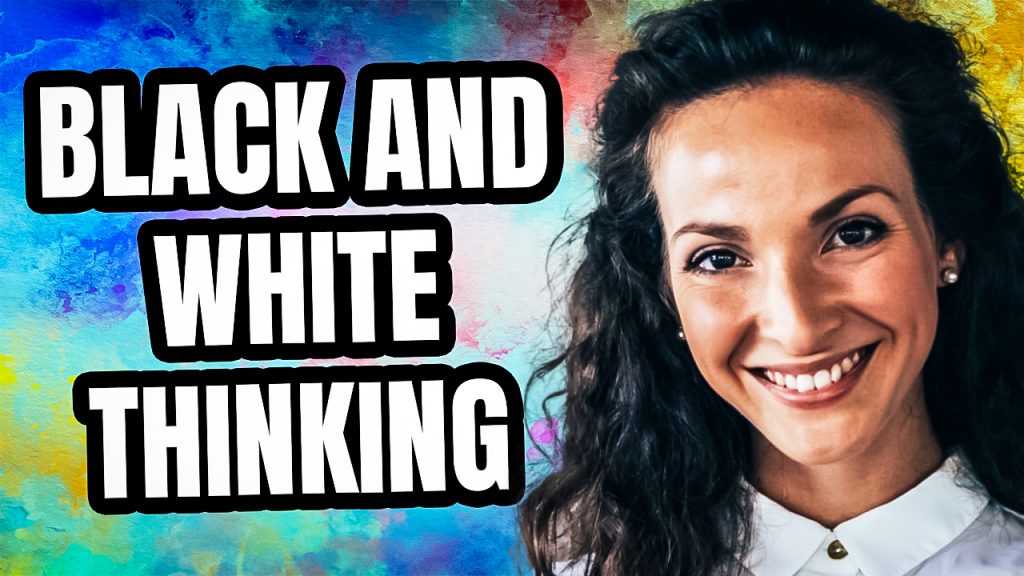What is Black and White Thinking?

Black and white thinking is a cognitive distortion that involves viewing the world in extremes.
People who engage in black and white thinking tend to categorize things into absolute
categories of good or bad, right or wrong, without considering any shades of grey. This type of
thinking can be problematic, as it can lead to oversimplified judgments and an inability to see
the complexities and nuances of life.
Black and white thinking is often associated with cognitive distortions, which are patterns of
thinking that can lead to negative emotions and behaviors. These distortions are thought to be
related to cognitive processes that evolved to help us quickly assess threats and make rapid
decisions in times of danger. However, when these processes are applied to non-threatening
situations, they can lead to irrational and unhealthy thinking.
One example of black and white thinking is dichotomous thinking, which involves dividing things
into two distinct and opposite categories. For instance, someone might see the world as divided
into good people and bad people, without considering that most people have both good and bad
qualities. Another example is all-or-nothing thinking, which involves believing that something is
either perfect or completely unacceptable. For example, someone might view their performance
at work as either flawless or a complete failure, without considering any middle ground.
Black and white thinking can have negative consequences for individuals and society as a
whole. For example, it can lead to intolerance and prejudice, as people may view those who are
different from them as completely different and unacceptable. This type of thinking can also
contribute to conflict, as people may be unwilling to compromise or see the other side of an
issue. In addition, black and white thinking can lead to anxiety and depression, as people may
feel that they can never measure up to their own or others’ high standards.
Despite the potential negative consequences of black and white thinking, it is a common
cognitive distortion that many people engage in. This may be due to a variety of factors,
including personality traits, upbringing, and cultural factors. For instance, people who are
perfectionists may be more prone to black and white thinking, as they may have rigid and
inflexible standards for themselves and others. Similarly, people who were raised in
environments with strict rules and expectations may be more likely to view the world in
absolutes.
One way to overcome black and white thinking is through cognitive-behavioral therapy (CBT),
which is a type of therapy that focuses on changing negative thinking patterns and behaviors.
CBT can help individuals to identify their negative thinking patterns, challenge them, and
replace them with more realistic and balanced thinking. This can help people to see the world in
shades of grey, rather than in absolutes.
Another way to overcome black and white thinking is through mindfulness meditation, which
involves paying attention to the present moment without judgment. Mindfulness can help people to become more aware of their thoughts and feelings, and to observe them without getting
caught up in them. This can help people to see the nuances and complexities of life, rather than
seeing everything in black and white.
In conclusion, black and white thinking is a cognitive distortion that involves viewing the world in
extremes. This type of thinking can be problematic, as it can lead to oversimplified judgments
and an inability to see the complexities and nuances of life. Black and white thinking can have
negative consequences for individuals and society as a whole, but it is a common cognitive
distortion that many people engage in. Fortunately, there are ways to overcome black and white
thinking, such as through cognitive-behavioral therapy and mindfulness meditation. By learning
to see the world in shades of grey, rather than in absolutes, individuals can lead more balanced
and fulfilling lives.
This Post is Brought To You By BetterHelp